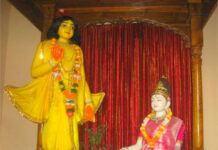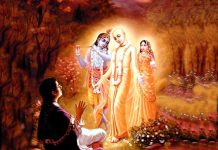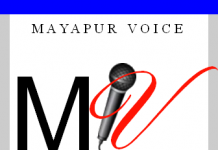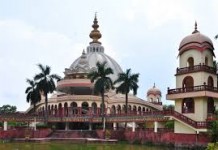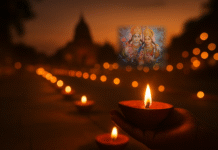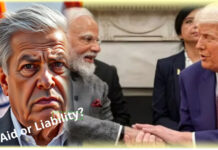It is not a small thing when a CJI makes statements in the Supreme Court of India. With the ongoing trend of uncalled-for side observations and casually passed objectionable remarks, the Supreme Court is quickly losing its long-stretched reputation.
On Tuesday, 16th September 2025, while rejecting a public interest litigation filed by Rakesh Dalal seeking the restoration of a reportedly beheaded murti inside the Javari Temple at Khajuraho, CJI B R Gavai allegedly suggested that the petitioner pray to Lord Vishnu for intervention. He made a few other statements, which we will come to later, but this particular remark has created an uproar among the sensible people of India for its insensitivity and unbecoming nature.
Such a statement, regardless of its intention, raises questions not only about the respect the highest court of India shows toward the nation’s Constitution, but also about judicial decorum and the seriousness with which proceedings are conducted.
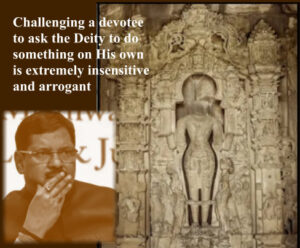 Asking someone to pray to Lord Vishnu is, in itself, absolutely fine. But the tone and context in which the remark was made are at the heart of the rising demand to hold CJI Gavai accountable. And rightly so. After all, a Chief Justice is first a citizen of India and then the CJI, and every citizen of this country is subject to the laws of the land, and such lapses become even more serious when coming from the CJI.
Asking someone to pray to Lord Vishnu is, in itself, absolutely fine. But the tone and context in which the remark was made are at the heart of the rising demand to hold CJI Gavai accountable. And rightly so. After all, a Chief Justice is first a citizen of India and then the CJI, and every citizen of this country is subject to the laws of the land, and such lapses become even more serious when coming from the CJI.
To be fair to the CJI, this is what he reportedly said: “This is purely publicity interest litigation… Go and ask the deity himself to do something. If you are saying that you are a strong devotee of Lord Vishnu, then you pray and do some meditation…”.
Mr. Gavai’s remark carries a tone of sarcasm and appears derogatory. Between the lines, it implies: go to a stone and see if it can act on its own. No follower of Sanātana Dharma would like to take this lightly, unless their understanding of deity worship is shallow. This is not a political issue, as some may try to brand it in order to distract from the real focus. To me, it points at a lack of respect toward Lord Vishnu’s sacred murti.
He added, “It’s an archaeological find, whether the ASI would permit such a thing to be done or not… there are various issues..” This, by itself, is fine. However, the issue is not really whether the authorities at the Archaeological Survey of India would allow it or not. Even if they did, vested interest groups in India could challenge such a move, and the matter could eventually come before the Supreme Court. And Mr Gavai should be very well aware of this. So, effectively, he is, knowingly or unknowingly, pushing the petitioner to run from pillar to post.
He also said: “In the meantime, if you are not averse to Shaivism, you can go and worship there… there is a very big linga of Shiva, one of the biggest in Khajuraho.”
At first glance, this might seem like a casual or even light-hearted comment. Yet, on closer look, it unveils disrespect, trivializes deep spiritual traditions, and risks provoking division among those who follow Them with sincerity. The remark subtly implies that genuine devotees of Vishnu might be averse to Shiva worship, an assumption far removed from the Vedic understanding, where Lord Vishnu and Lord Shiva are revered in Their unique positions. This particular statement exposes Mr. Gavai’s ignorance in the sacred domain of Deity worship.
Moreover, the phrase “you can go” carries an air of authority and condescension, as if the petitioner required the Chief Justice’s permission to worship the Shiva Linga. Such remarks come across as inappropriate and unbecoming, especially when coming from the highest bench during a hearing. They
But the real issue runs deeper. It concerns the bias the judiciary allegedly holds, which is exposed from time to time in cases related to Sanatana Dharma. In a secular country like India, why are cases concerning other religions dealt with the utmost sensitivity, while Hindu or Sanatana Dharma matters are often treated differently? These are the questions the courts of India need to answer.
Historically, this is what happens when ignorance meets arrogance, especially when the duo is backed by lethal powers. Such people existed even in Satya yuga. A classic example of much greater magnitude is Hiranyakashipu, who, after receiving a boon granting him near-invincible powers, challenged his son Prahlad to prove whether his worshipable Lord Vishnu was indeed present in the pillar.
Bharat, which is now divided into many countries including India, Pakistan, Afghanistan, Bangladesh, and others, has a glorious history and a timeless dharma that was universally followed in the past. It was and is none other than Sanatana Dharma. It behoves today’s Indians to preserve what remains and support the restoration of its original glory.
Positions like President, Prime Minister, and CJI hold immense influence, and those who occupy these offices must exercise extreme care in their conducts. While their approach may be shaped by personal values, culture, or samskars, once offered these positions, they are duty-bound to respect them fully and must not misuse their authority. Meanwhile, an unconditional apology from CJI Gavai for his misconduct is due.


